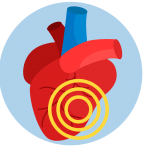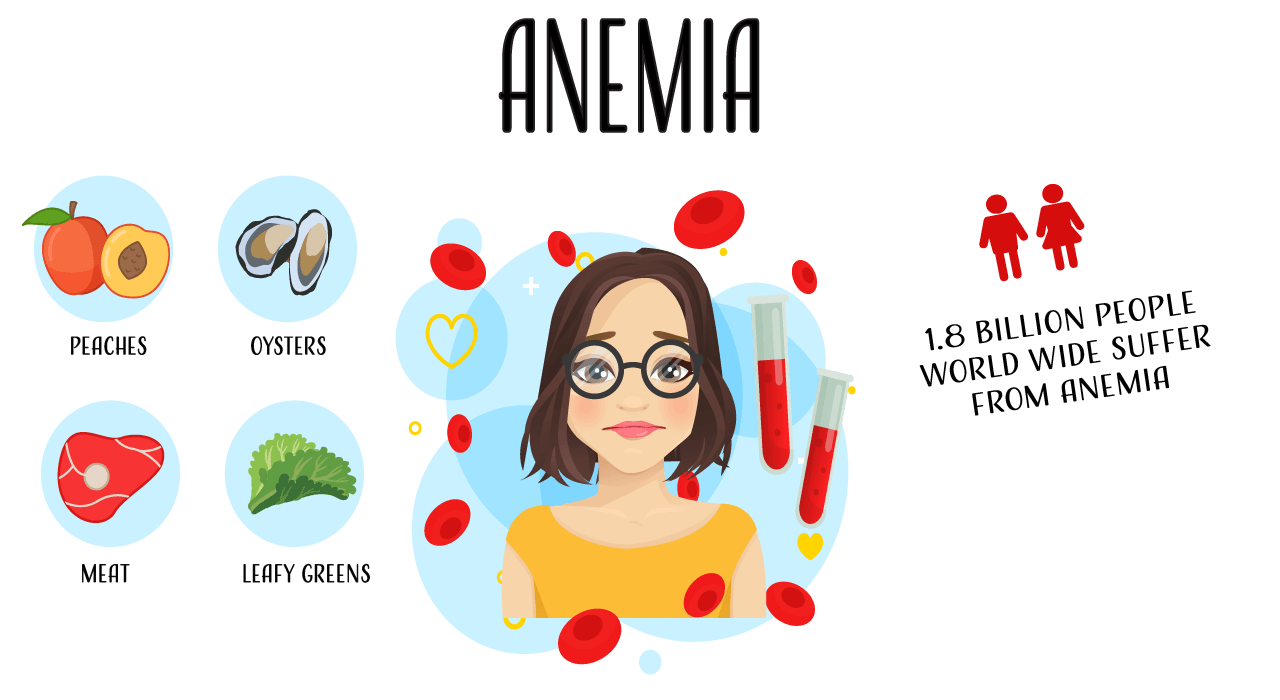Anemia is a health condition in which the amount of red blood cells or hemoglobin (the protein that carries oxygen) is lower than normal. This condition prevents the blood from carrying enough oxygen to all parts of the body and causes a variety of symptoms. The causes of anemia can be divided into three main categories: Blood loss, Insufficient Red Blood Cell Production, and Excessive Destruction of Red Blood Cells.
Decreased Production
- Iron deficiency
- Vitamin B deficiency
- Folic Acid deficiency
- Vitamin C deficiency
- Aplastic Anemia
- Myelofibrosis
- Myelodysplasia
- Lukemia
- Lymphoma
- Metastatic Cancer
Excessive Bleeding
- Accident
- Surgery
- Ruptured Blood Vessel
- Child Birth
- Chronic Nose Bleeds
- Hemorrhoids
- Stomach Ulcers
- Cancer/ Polyps in digestive tract
- Tumors in Kidney or bladder
- Heavy Menstration
Red Blood Cell Destruction
- Enlarged Spleen
- Mechanical Damage
- Autoimmune Reaction
- Paroxysmal nocturnal hemoglobinuria
- Hereditary spherocytosis
- Hereditary elliptocytosis
- G6PD deficiency
- Sickle cell disease
- Hemoglobin C disease
- Hemoglobin S-C disease
- Hemoglobin E disease
- Thalassemia
Symptoms

Fatigue

Fragility of hair

Heart Ache

Nail Changes

Dry cracked lips

Dry Skin

Frail Bones

Dizziness



